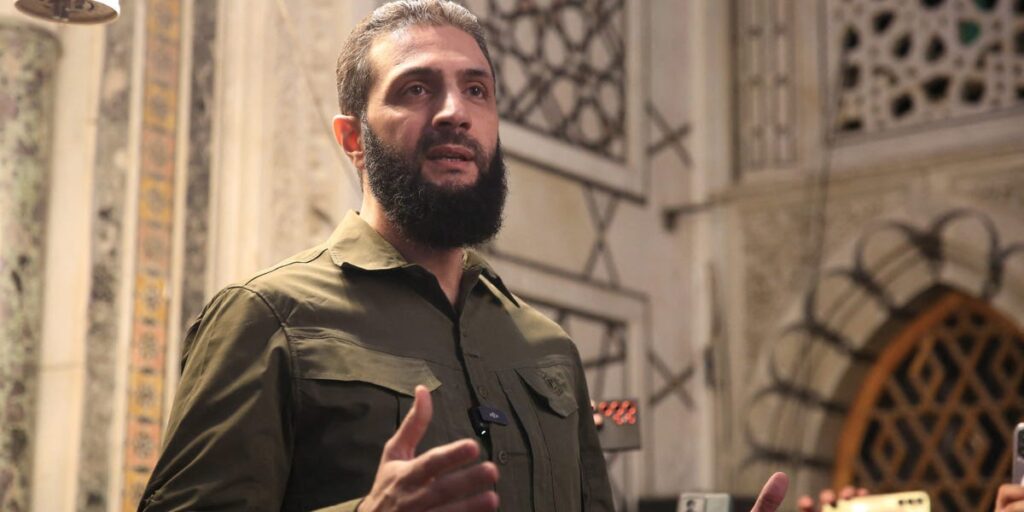- The US plans to remove a $10 million bounty on HTS leader Abu Mohammed al-Jolani.
- It follows a meeting between US diplomats and the Syrian rebel leader earlier this week.
- Jolani has worked to portray himself as a more moderate leader to the West.
The US is set to remove a $10 million bounty on Abu Mohammed al-Jolani, the leader of Hayat Tahrir al-Sham (HTS), the opposition group that spearheaded an offensive against Bashar Assad’s Syrian government forces.
Barbara Leaf, the Assistant Secretary of State for Near Eastern Affairs, made the announcement in an online briefing on Friday while discussing a diplomatic trip to Damascus where US representatives met with Jolani.
Leaf said the US delegation “welcomed positive messages” from the leader — who now goes by his birthname Ahmed al-Sharaa — and that he assured them that terrorist groups would not be allowed to pose a threat in Syria.
“And so based on our discussion, I told him we would not be pursuing the Rewards for Justice reward offer that has been in effect for some years,” she said.
Pressed for more information on why the US had decided to lift the bounty, Leaf said it was a “policy decision” that “aligned with the fact that we are beginning a discussion with HTS,” adding that it would be “a little incoherent then to have a bounty on the guy’s head” while sitting down for discussions on regional interests.
HTS, which is listed as a terrorist organization by both the US and the United Nations, traces its origins to Al Qaeda.
Jolani cut his ties with Al Qaeda in 2016 to form a new group, which became HTS the following year.
He has worked for years to portray himself as a more moderate leader to the West and has called the group’s terrorist designation a “political label that carries no truth or credibility.”
While stressing that the US would “judge by deeds” rather than words, Leaf said Jolani appeared “pragmatic” and noted that he had previously issued “moderate statements” on issues such as women’s rights and the protection of equal rights for all communities.
The US delegation, which included Roger Carstens, the special envoy for hostage affairs, also used the Damascus trip to explore leads on the whereabouts of Austin Tice, an American journalist who disappeared in Syria in 2012.
Carstens said that they had had “a lot of information coming in” but that it remained unclear whether Tice was alive. “The bottom line is the information that we have right now doesn’t confirm either in one way or the other.”

